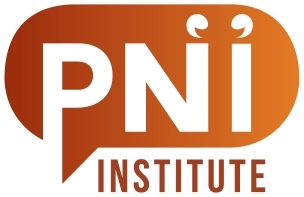On our next PNI Institute call, we will discuss how PNI relates to anthropology.
- Date Friday October 21 – NOTE – this is one week later than usual
- Time California 7 00 New York 10 00 London 15 00 Amsterdam 16 00 South Africa 17 00 Melbourne 02 00 (Saturday)
- Place Please follow this link to join the Zoom meeting. If you don’t yet have the Zoom client, you will need to download it. Here is a video that shows you how to join a Zoom meeting.
Here are some quick notes on themes that resulted from our previous call on PNI in development work.
Learning. We talked about what projects in Western (developed, or maybe over-developed) countries can learn from projects in the developing world. Our main thought was about adaptability. When you’re forced to strip away elements of PNI that you thought were essential – such as for example technology, writing things down, all speaking the same language, paper, walls, tables, etc. – the method improves by creating new ideas and opportunities that can carry over even to projects that have all those things (but maybe don’t need them). It’s easy to get into a fixed mindset about what PNI requires, and it can be refreshing to drop those requirements and rethink what can be done with just friendly people and lively minds.
Scaling. PNI projects can work at many scales, from micro (a few people in a room) to meso (a community or small organization) to macro (many people across a nation or huge organization). A PNI practice improves when you have opportunities to solve problems and come up with solutions at a variety of levels. Things that work at one level, such as across all customers of a giant mega-corporation, don’t work as well at another, such as within the members of a small tight-knit community. It’s easy to make the mistake of paying attention to the wrong scale, or giving one scale more attention than is going to work. In development work this is particularly crucial, because you can only spend your money once. Where should you put your resources? At what scale? What level of focus will create the biggest positive impact? It might not be possible to answer these questions until you’ve spent some time listening to people – before you listen to them – to find out how best to use your time and resources.
Winning. The best PNI projects are those where everyone gets something useful out of what happens, from those who tell stories who listen to those who make sense of things to those who read about the project later on. In the developing world it can be harder to create fully win-win situations, partly because the money and power often comes from outside the system, and partly because some people might not have the education or cultural expectations to participate equally in all aspects of the work. However, as we said above, a PNI project can adapt so that everyone is getting what they need out of it. Things can be added or dropped away to fit the context. It’s worth putting in this extra effort to “spread the project around,” because PNI isn’t a method that can work well for one group while working poorly for another group. Because PNI draws its energy from skills and traditions that are inherent in every human social group, and because stories are universally used to negotiate truth and power, PNI belongs to everyone. In other words, it’s win-win or fail.

This was an important topic for me. Unfortunately I failed to attend the meeting because of a long clinic and trip back home.
I was looking forward bigtime to this call. Now I see it falls in the middle of a long train trip later today. Will try to attend via the trains’ wifi. Hope it works.